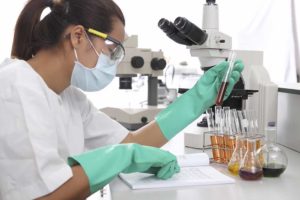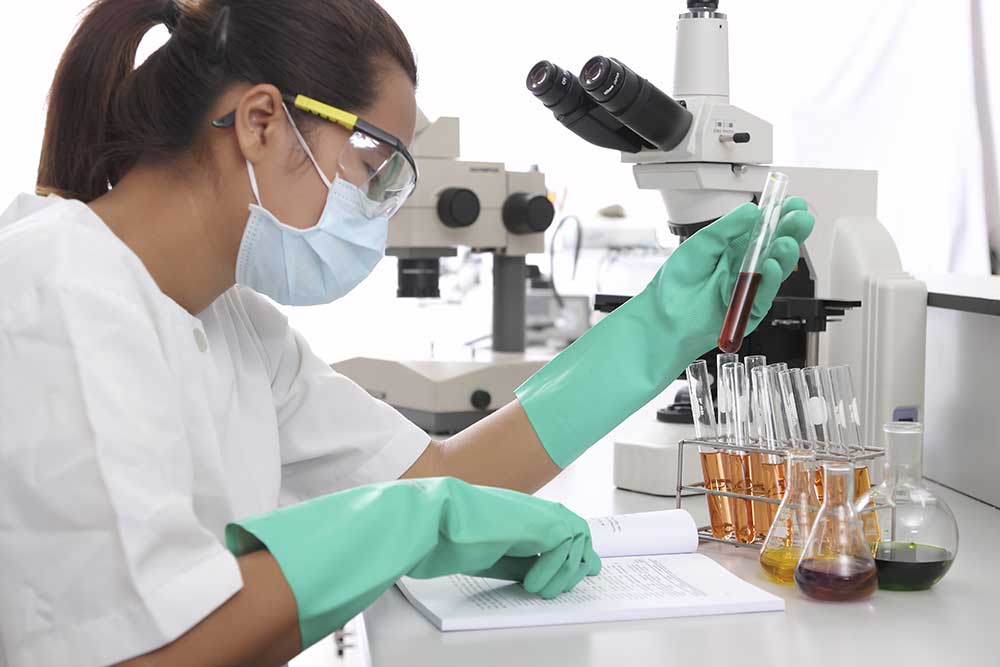Disclaimer: The information on our website is provided for general information purposes only. We make no representations or warranties of any kind, express or implied, about the completeness, accuracy, reliability, suitability or availability with respect to the website or the information contained on our website for any purpose. Any reliance on such information is therefore strictly at your own risk and we are not liable for any damages or losses arising out of or resulting from your reliance on any information contained on our website.
A clinical laboratory technician is also called a medical laboratory technician. They may work in labs, clinics, diagnostic centers, and hospitals. However, there are also non-clinical lab technicians. These technicians are often called biological, chemical, or lab technicians. Watch a video to see a day in the life of a clinical lab technician.
How to Become a Clinical Lab Technician

To become a clinical laboratory technician you would need an associate’s degree or to attend a certification programs. If you are looking for a educational program, do not get this confused with a medical laboratory technologist (the key word being technologist). A technologist would generally have attained a bachelor’s degree. However, a clinical laboratory technician can opt for an associate’s degree or certificate program from an accredited program. You can start as a clinical laboratory technician and advance to be a technologist.
Clinical Lab Technicians get job satisfaction because they know their work is critical to help doctors detect diseases or illness. Clinical Lab Technicians also benefit from working in laboratory environments with other professionals and enjoy an inclusive work culture! They also like the benefits of enhancing their scientific and technical skills and credentials.
Job Description of a Clinical Lab Technician
Clinical lab technicians play a crucial role in the healthcare industry, responsible for collecting samples from patients and subsequently utilizing laboratory equipment to analyze these specimens. Their primary duty is to maintain a consistently clean and sterile environment to ensure the accuracy and reliability of test results. Typically working under the supervision of a medical technologist, these technicians contribute significantly to patient diagnosis and treatment by generating critical data from various laboratory tests. These professionals are skilled in operating specialized equipment, handling a wide range of samples, and conducting tests that aid in identifying illnesses and monitoring patients’ health. Watch a career video to learn more.
Clinical Laboratory Technologist Career Video Transcript
When a doctor orders a series of tests on a patient, it’s the job of medical and clinical laboratory technologists and technicians to prepare and perform those tests to help detect diseases or abnormalities. These professionals analyze body fluids, tissue, and cells. Using powerful medical equipment, techs look for bacteria, parasites, and abnormal cells. They also analyze cholesterol levels, and cross-match blood samples for transfusions, documenting their results in reports or patient medical records.
Since they regularly handle samples and medical instruments contaminated by infectious microbes, they wear protective goggles, gloves, and masks to minimize the risk of contagion. In larger labs and hospitals, technologists and technicians tend to specialize in areas like blood work or microbiology. Most work full-time. In general, technologists supervise the work of technicians. Technicians need an associate’s degree in clinical laboratory science, and technologists need a bachelor’s degree in medical technology or life sciences.
Licensure is required in some states, and certification is often preferred by employers. The work can be stressful, especially when they must perform complex tests accurately and in a limited time. However, they gain satisfaction from knowing they’ve provided the vital information doctors need to save lives or cure diseases.
Article Citations
Bureau of Labor Statistics, U.S. Department of Labor, Occupational Outlook Handbook, Medical and Clinical Laboratory Technologists and Technicians.
National Center for O*NET Development. 29-2012.00. O*NET OnLine.

